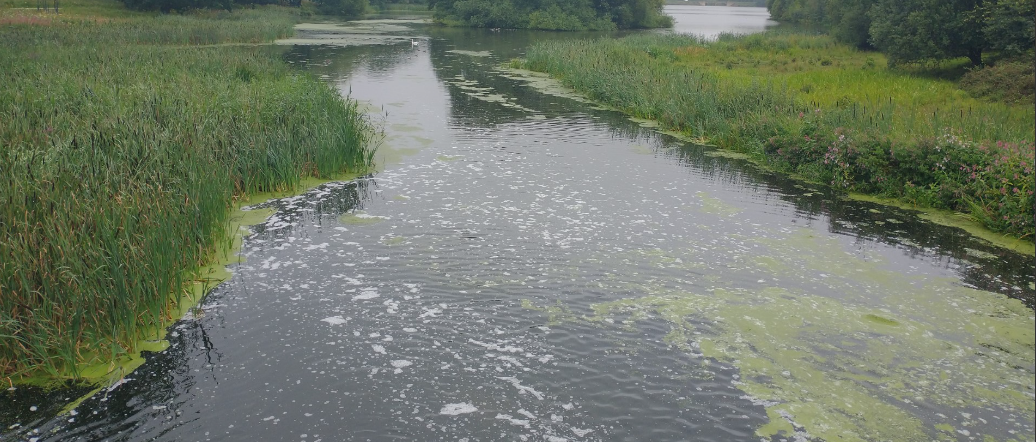
Submitted by Iona C. Hine on Sun, 18/02/2024 - 15:11
Earlier this month, the Cambridge Interfaith Programme sponsored two University of Cambridge students to attend a Youth Interfaith Summit addressing the intersection of faith and climate. By return, we asked each of them to reflect on the event and how it connects with their current studies.
Noah Rouse is a final-year undergraduate in the Faculty of Divinity. His dissertation (in progress) compares traditional Christian and Muslim attitudes to nature.
Noah writes:
As I reflect on the generative conversations I had with my fellow attendees at the Youth Interfaith Summit, run by LSE’s Faith Centre and The Faith and Belief Forum, I realise the themes of the event have reverberated throughout the past week. From the work that I am currently doing, comparing the Qur'anic perspective of nature with that of Saint Francis, to the conversations that I've been having, I've been consistently returning to recognising how effectively religious postures can respond to the impending climate crisis and wider issues of injustice.
The event started with a human library. I was interested in all the speakers but settled myself next to a Church of England vicar who is actively involved with Extinction Rebellion. Her story was an inspiring reflection on the process of responding authentically to the demand of faith to seek and enact justice. A key, and ancient, tension that arose throughout the discussion with her was that of whether one should eremitically retreat from a world tainted by structural sin, or whether one should remain within it in a position of prophetic defiance. It struck me how Vanessa was in the dialectic process of wrestling with these two options and I appreciated how she was openly still in the process of finding answers.
Faith and water scarcity
After an opening address, the summit split into workshops, each focused on a different aspect of the relation between faith and climate. Having previously worked with a grassroots water project, I gravitated toward the workshop led by Dr Hanane Benadi which was focused on how faith can help us respond to the issues of water scarcity.
We started by discussing how sacred water and water-sources are recognised across religious traditions and then our tendencies to use water without considering the importance of water or the vulnerability of the systems which provide us with water. We then concluded by reflecting on how our society has lost the sacral communality of shared water sources.
Where, historically, water sources were spaces where people came together, we now have water pumped directly into our homes and thus our consumption of water has become untethered from our experience of being part of a community and the duties and responsibilities that come with this. Sacred water sources are an exception to this and thus provide a fertile arena in which to constructively think about how to approach inter-communal issues of water scarcity.
Agency and entanglement
One of the key themes that arose for me during the event was that of agency. The human library conversation revolved around how we can use our agency to authentically respond to faith’s demand for justice. The workshop on water revolved around how to use religio-ethical concepts to inspire people not to abuse their agency and excessively consume resources at the expense of others.
Reflecting on this throughout the week, I've continually come back to how effective religion and faith can be in marshalling our agency in the direction necessary for us to have any chance of responding to the climate crisis in a positive way. Indeed, it has often struck me that, of the individuals I have encountered who are engaged in climate activism and wider efforts to create justice in the world, those I have found most inspiring and insightful are individuals who interact with the world from a religious posture, whether they subscribe to a particular religion or not. By this I mean that they take a posture that recognises us all being entangled in a web of life which can become dynamically integrated through human actions but can also be torn apart by the human transgression of rights and duties.
In conclusion
I am very grateful for the conversations and discussions at the Youth Interfaith Summit. They illustrated how effectively interfaith dialogue can lead to the recognising of postures that are urgently required by the impending climate catastrophe and are especially needed in a climate of political instability and increasing division.
Further information
More about this event
Noah’s report is the second student report from this event. Read Arbah Azhar’s reflections in the earlier report: a blessing just to live.
About Religion and Global Challenges
Noah and Arbah’s attendance at the Youth Interfaith Summit sponsored as part of CIP’s Religion and Global Challenges Initiative. Learn more about Cambridge work in this domain.
Upcoming in Cambridge
For those interested in reflecting further on religious encounters with water, check out the conference: Being with Water OTHERWISE, 15 & 16 April 2024.
CIP is pleased to be partnering with the LSE Religion & Global Societies team for this year’s academic summer school: Religion and Climate Futures, 1–5 July 2024.
